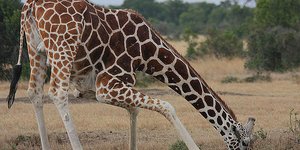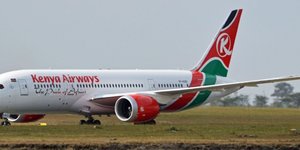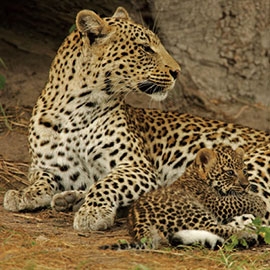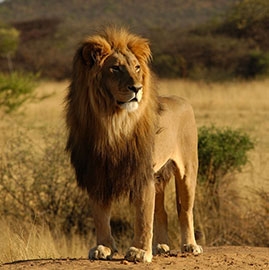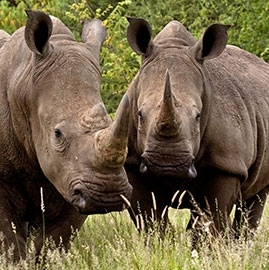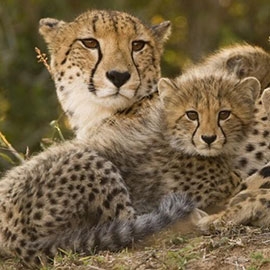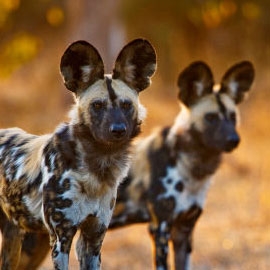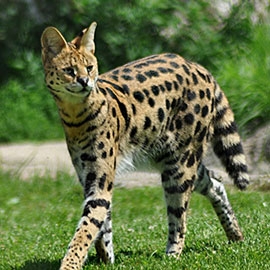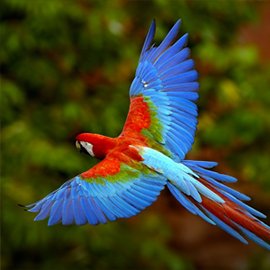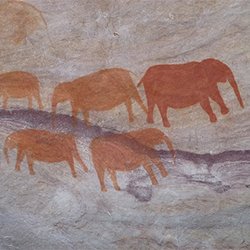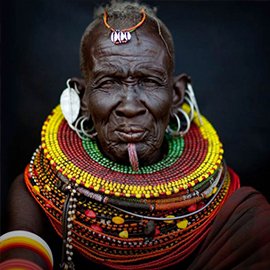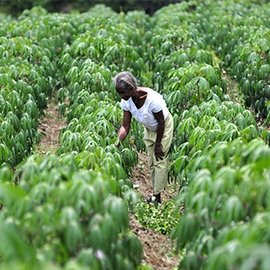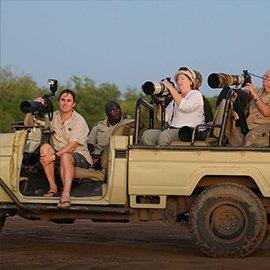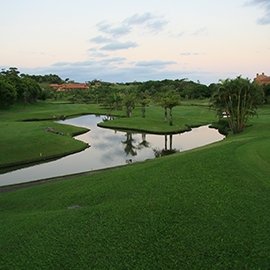Laikipia Plateau
Safari suitability: 8/10
Find your tourOften considered the gateway to Kenya’s northern frontier, the plateau is known to harbor endangered mammals and be off the beaten path.
What YAS members think
Highlights
- Conservation and sustainability efforts
- Exclusive, luxurious accommodations
- A last stronghold of the black rhino
- An isolated wilderness
- Mount Kenya and the Rift Valley
About Laikipia Plateau
While the remote Laikipia Plateau, located on the eastern escarpment of Kenya’s Rift Valley, is not officially protected by the Kenyan government, its collective of cooperating private ranches and farms has created a functioning game reserve, complete with exclusive lodges. Laikipia Wildlife Forum, founded in 1992 with a mandate to conserve, sustain and manage the area’s ecosystem and wildlife, seeks a “healthy and productive natural environment for people and wildlife for the future of Laikipia and Kenya,” including ethical trade and commercial relationships with the area’s residents.
Pastoralists, farmers, local communities and wild game coexist in the area’s grasslands, hills and forests, which extend from Mount Kenya to the Rift Valley. The isolated area is beginning to be known for its luxurious private accommodations and its wild wilds—black rhino, Grevy zebra, wild dog, reticulated giraffe, gazelle, lion, leopard, cheetah and buffalo all make their home in this infrequently visited wilderness.
When is the best time of year to visit Laikipia?
Warm and dry, July to October are the best, most pleasant months for visiting the Laikipia Plateau and viewing game; January to March are dry but hot, and rains characterize April to June and November and December.
The Laikipia plains are covered by open grasslands and basalt hills, with game roaming freely. This area is ideal for visitors who are interested in an excellent combination of culture and nature.
Sort by:
We managed to organized ourselves 3 days safari to Ol Pejeta conservancy in Laikipia plateau with four of my friends and indeed it was a trip of its kind in this awesome conservancy Ol Pejeta a.k.a Sweetwaters. This is the home of chimpanzees as we got encountered with them in their sanctuary with their funny behaviours closely resembling those of human beings. Other family of the Big Five were also here. So our experience in this conservancy was next to none due to its abundance of animals and birds. However whenever you're looking for a safari in Kenya ensure to incorporate it in your itinerary and for sure you will not be disappointed at all.
Got to visit Olpajeta Conservancy which is home to the largest population of the very rare white rhino and visited the chimpanzees. A really cool destination worth staying more than a night.
Quite possibly my favorite spot in the whole of Kenya, the Laikipia Plateau has stunning landscapes and incredible game. Rare species such as Grevy's zebra, Jackson's hartebeest, reticulated giraffe and Somali ostrich can be found throughout the area, often with the breathtaking backdrop of Mt. Kenya's snow-capped peak. Even more interesting is the land-sharing model that exists in conservancies throughout the Plateau. Domesticated and wild animals share land in many instances, the former helping to fund continued existence of habitat for the latter. It's innovative and may be a large part of the future of African wildlife. Two other places of note are in the Ol Pejeta Conservancy. It is one of the only places on earth to see the last remaining northern white rhino. A sad visit for sure, but a good and poignant reminder of why species and habitat preservation are so important. There is also a chimpanzee sanctuary in Ol Pejeta. While not endemic to Kenya, the Sweetwaters Chimpanzee Sanctuary allows visitors to see rescued chimps in a large natural enclosure while helping to support the rehabilitation of the animals.
During the month of September, 2012, my friends and I drove to Laikipia Plateau by road from Nanyuki. Laikipia plateau is positioned amid the superb snow-capped Mount Kenya and the foot hills of the Aberdares. On our way there, we saw massive ranches that were mostly privately owned as we were told by our tour guide, though, now dedicated to conserving wildlife. We visited a number of large conservancies such as: Lekurruki Group Ranch, Loisaba Wilderness, Borana Ranch, IL Ngwesi Group Ranch, Lewa Wilderness Conservancy, Sosian Ranch, and Sabuk Wilderness. Most of these conservancies differ from one to the other, with some being used for educational purposes as well as research and projects, and the others being run by the Masai and Samburu communities. While moving around riding camels, we noticed some elephants on foot just roaming around. We were surprised to see that the plateau had more species, mostly endangered, than anywhere we had visited within East Africa. Some of the rare species we saw included wild dogs, Jacksons Hartebeest and the Grevys zebra. Some of the other species we saw were the Somali ostriches, Beisa oryxes, reticulated giraffes, gerenuks, lions, cheetahs and leopards, and numerous impalas and gazelles. There were also waterbucks, greater kudus, buffaloes and even giant forest hogs among other species, together with over 200 birds' species.
We made our last stop In Kenya at the Laikipia Plateau National Reserve. It's found in a remote and truly wild corner of Kenya on part of the renowned Masai Mara ecosystem on Laikipia plateau. We got there by sunrise and quickly began our walking safari for our one-day adventure. We were greeted by one of the friendly tour guides who was going to show us around the spectacularly beautiful setting of the reserve. Through the walk we saw two main rivers found in the reserve the Ewaso Ngiro and ewasa narok that run through the area attracting a rich variety of wildlife, including the second largest population of elephants in Kenya. There was also a variety of rare and endangered species which include African wild dog, Grevys zebra and the semi-aquatic sitatunga antelope, to see this unique wildlife was definitely a special moment. The vast open plains in the shadow of the snow-capped silhouette of mount Kenya created a tranquil and secluded setting, where we encountered abundant wildlife. This was like a wild yet romantic haven. After enjoying the vast wildlife we went on an enthusiastic, exhilarating horse ride through one of Kenyas most breathtaking landscapes. Each horse had been selected for its steady temperament and expertly trained, making adventure suitable for even the most inexperience riders. The view of the Mount Kenya was spectacular. After the exhilarating horse ride, we spent the rest of the evening at the carnivore which a found to be a very jovial venue which was hailed as the ultimate Beast of a feast. I, being barbecue lover, enjoyed their very best roasted meat which was properly done to perfection on Masai swords over huge charcoal pit and served onto cast iron plates. All in all the Laikipia national reserve is a spectacular place.
A batch of friends and I took a drive from Kenyas capital, Nairobi to the Lewa Conservancy on the Laikipia Plateau. From the Nyeri/Nanyuki road, you have the magnificent view of the towering Mt Kenya on east side and the rolling Aberdare ranges on the other. Further, into the plateau, you get a magnificent view of vast grassland that surprises with the odd sighting a herd of giraffes, zebras, gazelles and the occasional hyena. Having spent most of day driving through the plateau, we finally arrived at the conservancy. The most amazing thing about this, and the other conservancies in the area, is the sheer vastness of the land on which it stands. Lewa sits on 30,000 hectares of savannah. At Lewa, we took a guided bush walk through the grassland and enjoyed the peace of morning breeze against a backdrop of gazelles, zebras and wildebeest grazing on the dewy morning grass. The Ngare Ndare forest was amazing with its streams and bird life and we had a great picnic by the river. On the second day, we took a game drive and were able to see more of the expansive ranch and sight the more of the animals we dare not get close to, on a walk. The conservancy has lots of gazelles, zebra, rhino, buffalo, and even elephant. On a clear morning, you can enjoy the amazing view of snow at the peak of Mount Kenya against a backdrop of sunrise from the east. It is an amazing site! All in all the guides on both the game drive and the walk were great and knowledgeable and the accommodation and food at the campsite A+. The amazing thing is proceeds of fees for the park go into conserving endangered species in the area.
Driving to Laikipia from Nairobi
It is just under a six-hour drive to the park gate from Nairobi's international airport.
Domestic flights to Loisaba (Laikipia) from Nairobi
Domestic airlines such as Safarilink offer daily flights from Nairobi. The flight is 55 minutes in duration.
This excerpt is taken from their site
"In Laikipia in the foothills of Mt Kenya, Loisaba has a combination of grassy plains, valleys, cliffs, escarpments and two major rivers, and is home to over 50 species of animals and 260 species of birds. It also offers luxurious accommodation and possibly the most diverse and exciting range of activities in Kenya."
Laikipia Plateau map
Nearby parks and game reserves
Related articles
Latest photos
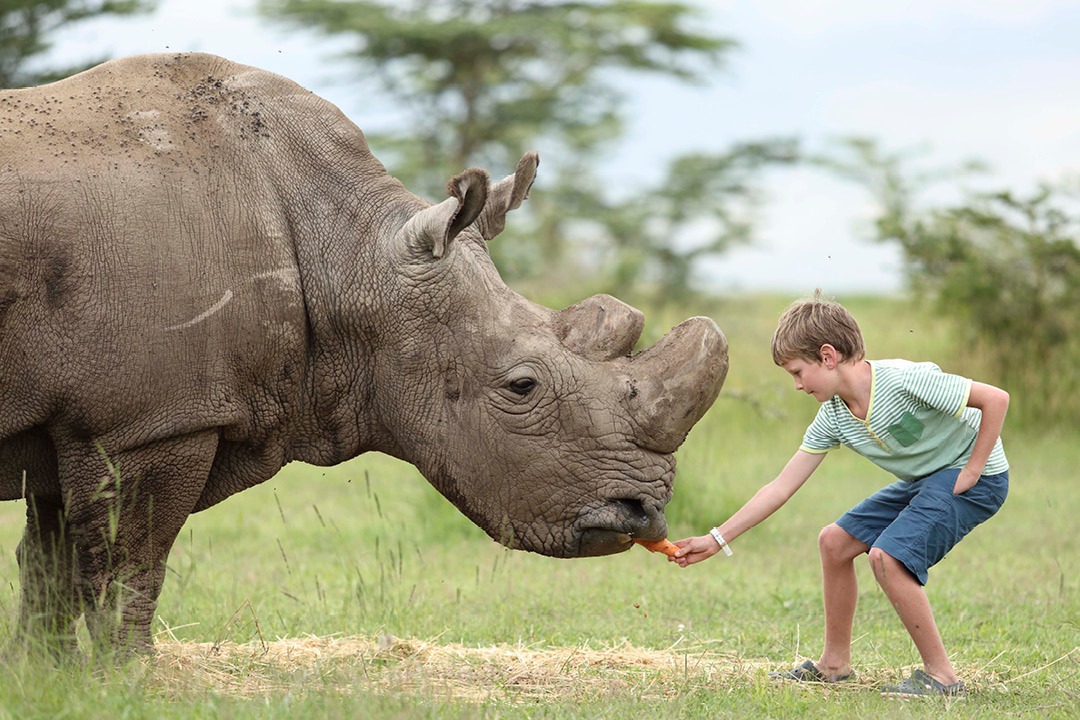


 Kenya
Kenya
 United States
United States
